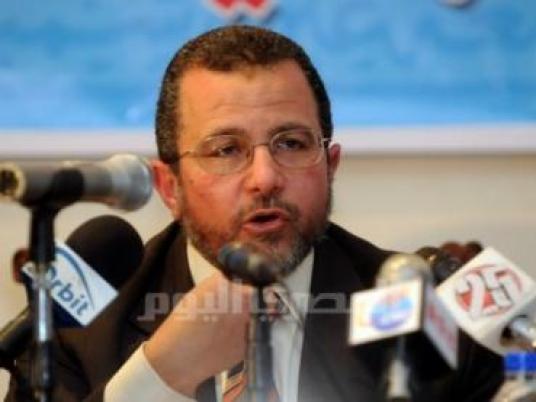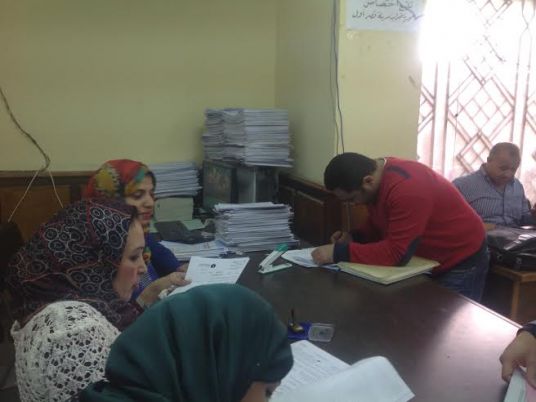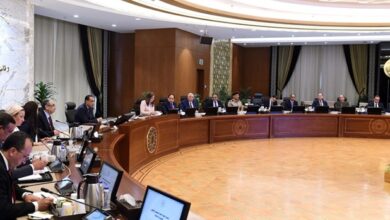
Despite secular groups’ frenzy about state institutions being headed and dominated by the Muslim Brotherhood, the Cabinet formation came against all expectations. Only five out of the 36 ministers appointed by President Mohamed Morsy and Prime Minister Hesham Qandil are affiliated with the Brotherhood or its Freedom and Justice Party. They are the higher education, youth, housing, information and manpower ministers.
With so many ministries outside the Brotherhood’s scope, its famous Renaissance Project, the platform of Morsy’s presidential campaign, won’t come to life, predicted Hassan Abu Taleb, researcher at Al-Ahram Center for Strategic and Political Studies.
“The Renaissance [Project] is now a delayed project until things stabilize and the president’s powers become clear with the new constitution,” he said.
There has been some speculation over whether this government will complete its term or whether another would be appointed after a new constitution is in place.
Abu Taleb said he thinks many people, including Muslim Brothers, might have wanted to wait for a more guaranteed post.
“Another reason could be that the Muslim Brotherhood and the FJP have very limited caliber among their ranks that can take responsibility in such a critical time,” he said.
However, American University in Cairo political science professor Manar al-Shorbagy argued that “the Brotherhood took the portfolios that is has talking about as important to it all along.”
“This is their goal; they want to start change through education and youth,” Shorbagy said.
Who are the new ministers?
Khaled al-Azhary: The labor chief
Khaled al-Azhary, 46, appointed to the Manpower Ministry, is a former MP, former deputy for the Egyptian Federation of Trade Unions, a member of the Constituent Assembly and a Freedom and Justice Party leader. He is the fourth manpower minister since the 25 January revolution, a period that saw multiple protests and strikes by both private and public sector workers and employees.
Several observers have said Azhary’s appointment is an attempt by the Brotherhood to spread control over the labor sector and to issue a new law on trade union freedoms to replace Law 35/1976, which violates the laws of the International Labor Organization. This feeling is reinforced by the fact that the Brotherhood’s position on recent labor protests has wavered between support and criticism.
While the Brotherhood supported the protesting workers at ceramics giant Ceramica Cleopatra and intervened to achieve their demands, heaping pressure on factory owner Mohamed Abul Enein — a former National Democratic Party leader — it accused striking workers at the state-owned Mahalla factory of treason, saying they had state security agents among their ranks.
Azhary was a member of the dissolved Parliament’s manpower committee, which prepared a draft law to replace the current labor unions law. The proposed law sparked the anger of labor leaderships because it would have banned the establishment of independent trade unions and syndicates after their number hit 260 after the revolution.
The proposed law also would have prohibited the formation of multiple staff committees at a single factory or company, after 800 such committees had been formed in violation of the law. In an interview with Egypt Independent in May, Azhary said the law proposed by the FJP would protect labor from chaos, while the formation of multiple staff committees at factories and the establishment of independent trade unions would devastate the country’s economy.
Salah Abdel Maqsoud: The obedient
Information Minister Salah Abdel Maqsoud was born in 1958. He graduated from Cairo University’s Faculty of Mass Communication in 1980. His resume attests to professional experience that rarely went beyond the parameters of the Muslim Brotherhood-funded media.
He was on the editorial board of many of the group’s publications since the 1980s, until he headed the group’s media training center, known as the Arab Media Center. A source close to the Brotherhood said Abdel Maqsoud is a low-profile member. His appointment is related to his predisposition to obey orders from the group’s leadership.
In the meantime, some of his fellows had complained that he lacks a rich professional background that would qualify him for the post. Abdel Maqsoud had served for three four-year-long terms on the Journalists Syndicate board. He is a former undersecretary of the syndicate. After the revolution, he was instated as acting chairman in the wake of the resignation of Makram Ahmed, a supporter of former President Hosni Mubarak.
Gamal Fahmy, a columnist and a member of the current Journalists Syndicate board, said Abdel Maqsoud made it to the board years before the revolution, because — like other Brotherhood-affiliated journalists — he used to run on the government-backed list.
Abdel Maqsoud’s appointment comes amid the Brotherhood’s alleged attempts to tighten its grip over state-owned media. Earlier this summer, the Islamist-dominated Shura Council insisted on reshuffling the leading positions in government-owned newspapers, with growing suspicion that the Brothers seek to instate editors who are loyal to them.
In the meantime, the nomination of an information minister in the first Brotherhood-sponsored Cabinet comes as a disappointment to many liberal journalists who have long opted for the annulment of the post to liberate the media from government intervention. They hold that information ministers are only appointed in undemocratic regimes.
Tareq Wafiq, newly appointed housing minister, is an architecture graduate from Cairo University’s Faculty of Engineering. He is the first housing minister who specializes in urban planning, as he has a PhD in natural resources and planning from the University of Colorado.
While he is a technocrat of the first degree, he is also a member of the Freedom and Justice Party, and he devised the regional and urban dimensions of the Renaissance Project. He is also a member of the Engineers Syndicate, after the Muslim Brotherhood won the majority of its seats.
Wafiq said he would activate the Egypt 2052 plan, a project that aims to invest every corner of the country for development purposes and that was criticized for its vertical approach, which ignores the views of the communities that could be relocated as a result. He also said he would continue the million housing units project that his predecessor had started, a project that lacks information about its funding mechanisms and whether the units would be rented out or owned.
Osama Yassin, 47, is appointed to the newly established Youth Ministry, which was previously the Youth and Sport Ministry. The two were separated because Prime Minister Hesham Qandil decided the Sport Ministry should focus on improving sports in Egypt, while the Youth Ministry should focus on unemployment and other issues.
Previously, the ministry had no such responsibilities but was rather focused on organizing social activities and sporting events through state-run youth centers. These centers had usually been managed by figures from the formerly ruling National Democratic Party and were used to promote its ideas, through awareness sessions and conferences. They were also often used as platforms for NDP campaigning during elections.
Many see Yassin’s appointment as an attempt to purge these spaces. Yassin is known to be a very active Brotherhood member since he joined the group in 1985. He was the deputy head of the Youth Committee in the dissolved Parliament, and his name came up as a potential head of the Freedom and Justice Party following President Mohamed Morsy’s election.
Mostafa Mossad is the country’s new higher education minister. A teacher at Cairo University’s Faculty of Engineering and the man behind President Mohamed Morsy’s education program, Mossad has a low media profile.
He hasn’t partaken in any elections with the Brotherhood before. Universities’ staffs reacted to his appointment with some dismay because he is an academic who might be unable to handle the administration of a ministry, viewing his technical and academic expertise as not enough for the post.
Some staff members at Alexandria and Kafr al-Sheikh Universities threatened to strike if their demands for better financial conditions and other issues are not met. His predecessor, Mohamed al-Nashar, left a body of professors infuriated when he said professors who used to have a mission today have disappeared, and have been replaced by professors who always need to be directed and guided.
This article was originally published in Egypt Independent's weekly print edition.




